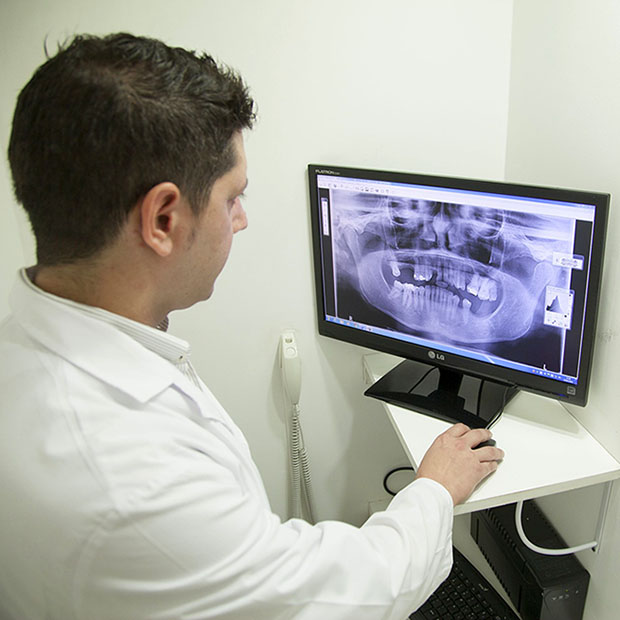What Are All Those X-Rays For?

Just about anyone who’s been to the dentist has had dental X-rays taken.
How much do you know about the role they play in dental care? Let’s take a quick look at the different types of dental X-rays and what we use them for.
Seeing Inside Your Teeth: The Value of X-Rays
One of the main goals of a dental exam is checking the teeth for any signs of decay or cavities. The earlier the dentist catches these problem areas, the easier they’ll be to treat, but they often aren’t visible to the naked eye in the early stages. There are many crevices between and around teeth and other small spaces that are difficult to see, and obviously we can’t see the inside of teeth at all without some help from technology. That’s where X-rays come in.
Panoramic X-Rays
The panoramic X-ray is the wide shot that lets us see the entire dental arch in one image. It shows not only erupted teeth but also incoming adult teeth and wisdom teeth, which is great for being able to see if there will be enough room for them or if they need some extra help or extraction. Panoramic X-rays also help to identify dental cysts, tumors, and abscesses that develop below the gumline in the dental roots and jaw bones.
Bitewing X-Rays
To get a closer look at an individual region of the dental arch, we use bitewing X-rays. These are the ones where you have to bite down on a piece of plastic to hold the X-ray film in place, then wait for the beep. Normally we’ll take four in total, one for each quadrant of the mouth. These are better than the panoramic shots at showing the gaps between teeth and make it easier to spot cavities and tooth decay.
Periapical X-Rays
If we ever need an extreme close-up of a tooth, we might take a periapical X-ray. These are only necessary when it already looks like there’s a problem with that tooth and we need to see it in greater detail, and we can take these X-rays alongside the bitewings.
X-Ray Radiation and Patient Safety
Some patients come in with concerns about exposure to X-ray radiation. While the process does involve very brief exposure to low levels of radiation, we provide protective lead aprons to ensure that exposure is as low as possible, and dental X-rays are considered extremely safe for patients.
Is It Time for Your Teeth’s Next Photo Shoot?
If it’s been a while since your last dental exam, why not schedule an appointment? You’ll get that professional cleaning that your teeth can’t get anywhere else, and the dentist can make sure that everything looks good, both inside and out!
